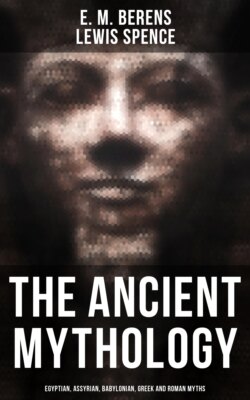Читать книгу The Ancient Mythology: Egyptian, Assyrian, Babylonian, Greek and Roman Myths - Lewis Spence - Страница 129
На сайте Литреса книга снята с продажи.
Sacrifices
ОглавлениеLike the other Semitic peoples the Babylonians attached great importance to the question of sacrifices. Professor Robertson Smith has put it on record in his Religion of the Semites, that sacrifice among that race was regarded as a meal shared between the worshipper and the deity. This view of sacrifice is almost world-wide among peoples in the higher stages of barbarism if not in those of savagery.
There is no source from which we can definitely discover the exact manner of Babylonian and Assyrian sacrifices. As civilization advanced what was intended for the god almost invariably went for the use of the temple. Certain parts of the animal which were not fit to eat were burned to the glory of the deity. The blood of the animal may, however, have been regarded as more directly pleasing to the gods, and was probably poured out upon the altar. This practice is distinctly of magical origin. The wizard believes that the dead, demons, and supernatural beings in general have a special desire for blood, and we remember Homer's vivid description of how, when the trench was cut and the blood of the victims poured therein, the shadowy presentments of the dead flocked about it and devoured the steam arising from the sacrifice. In some cults blood alone is offered to the gods, and perhaps the most striking instance of this is afforded by the religion of ancient Mexico, in which blood was regarded as the pabulum or food of the gods, and the body of the victim as the ceremonial corpse of the deity to be eaten by his worshippers.
1. Zikkurats of the Anu-Adad at Ashur.
2. Stage-tower at Samarra.
